CAN WE LEARN FROM HISTORY?
On the occasion of the presentation of history books prepared and published by the Centre for Democracy and Reconciliation in South Eastern Europe (CDRSEE) I participated at a discussion in Tirana, specifically in the premises of the Prime minister office. Tirana has always been a city I liked very much since the first time I was there in the beginning of the nineties. It has a very southern, mediterranean flair, especially after the former mayor Edi Rama – who is now Prime minister – brought a lot of colors and environmental improvements to the city. One additional investment is the opening of the Bunker, which was built in the centre of Tirana for Enver Hoxha and his government during a very strange Communist regime. It shows part of the not so lucky history of that small Balkan country.
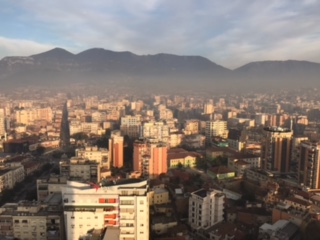
There is always the question if we can learn from history and secondly what we can learn. Can we even agree about history, its facts and its interpretation? Well, we should be modest but we should not refrain from learning and striving to find the truth or perhaps the many truths recognizing that often there is no single uncontested truth.
POLITICS BASED ON FACTS OR POSTFACTUAL POLITICS
But there are people – including politicians – who try to find the truth and who are eager to discuss different approaches towards truth. To find the truth you must try to look without prejudice to the facts. Already this is difficult and does not seem to be en vogue. It is a post-factual time and many people try to develop a contrafactual – one could also say ideological – policy, especially foreign policy.
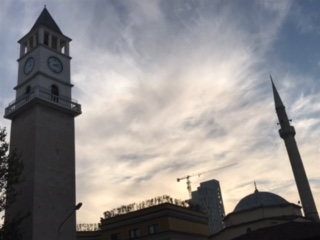
The history books we present today want to balance and counter this modern neglect of facts. But at the same time it is clear, that you may have different attitudes and evaluations of these facts. As long as these differences are argued and explained – and with an open mind to learn and correct ones views – it is helping to develop an interesting historical dialogue.
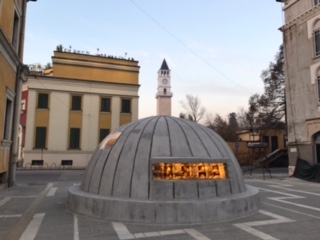
And we have to recognize there is also a strong tendency of what is called transactional foreign policy, a policy neglecting values but seeing only interests and of course underlining ones own interests. This kind of policy is also not based on looking to history, because a foreign policy, based solely (!) on interests will not develop strength and get support from outside. It is very shortsighted.
SOUTH EASTERN EUROPE – MORE HISTORY PRODUCED THAN CAN BE CONSUMED?
The history books edited by the Centre for Democracy and Reconciliation in Southeast Europe (CDRSEE) are dealing with a very special region with a history of many divisions, fights and wars. It is also a region where foreign powers always tried to intervene. Not so much because they wanted to reap the region’s resources. The region plays a role of balancing the different powers trying to gain dominance in Europe.
You could see these tendencies during the times of the Ottoman Empire, before and during the Balkan wars, at the beginning of World War I and World War II. Also the Cold War had its influences from the outside, especially when powers tried to win Yugoslavia to their camp. Tito tried to avoid a one sided dependency, and decided, that Yugoslavia would join the non-aligned countries.
THE NEW POWER GAME
After the dissolution of Yugoslavia and in view of the wars tearing apart the countries of the region Europe developed an active policy for the Balkans. The EU started with defining and supporting the transformation by spending money and the promise of EU membership. The more this membership is questioned or put on hold, the more Russia, China but also Turkey want to gain influence in the region. These countries have no strong transformative interest, they have an interest to strengthen their political, economic and even religious influence.
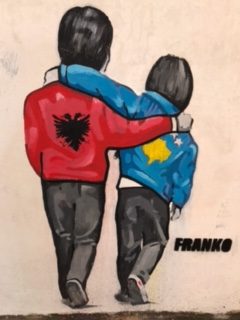
The Atlantic and Pacific powers, the US and China, are new in the game. Europe in the form of different European countries and as a Union, Russia and Turkey are well known to the region. From experiences with these traditional powers the countries from the region could learn how to deal with the aspirations of these countries.
All these powers have their interest, no doubt about it. While it would be easier in the short run to follow those powers who have no demands for modernizing and transforming the countries of the region it may be very shortsighted.
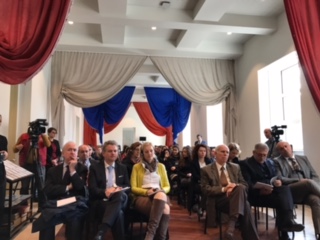
The US wants to enlarge NATO and contain Russia. They hope by joining NATO, the countries would slowly transform themselves and be open for US investment. Russia wants political influence to counter the strength of the West and prevent NATO enlargement. China wants access to markets in Europe and is eager to build the necessary infrastructure from harbors to rail and road links. And Turkey wants to be recognized as important and influential power and as a strong religious, Sunni, force in the region. All these countries have specific interest but have less transformation ingress than Europe.
The EU still wants to avoid a „black hole“ in their back yard, because this would enhance emigration and in the worst case new wars. The transformative demands of the EU are hard to accept and follow, but they may lay the foundation for economic growth, exports and employment.
COUNTRIES CAN LEARN AND CHOOSE
The countries of the region have to choose and they should look to their history. It was a history of many periods of conflicts and wars. Many countries were misused by outside powers because they were too divided and too weak to resist. So there is something to learn.
They could learn that cross-border cooperation including economic connectivity makes them strong and able to meet outside powers with determination and their own visions. They could learn that one-sided dependence on the one hand or isolation on the other hand is weakening their power and influence.
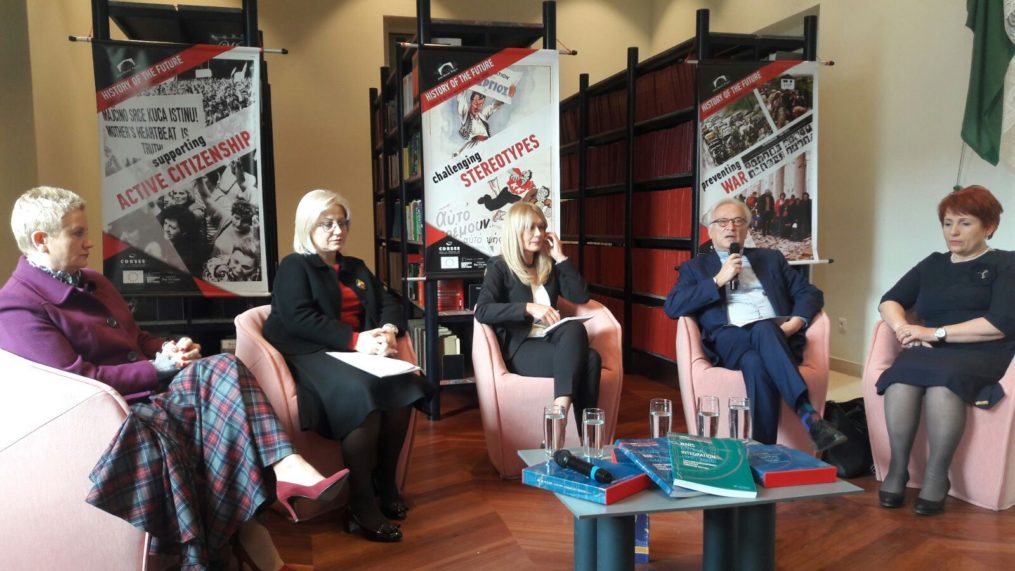
They could also learn that internal, domestic disputes beyond the normal democratic discussions between government and opposition would equally weaken the possibility to represent the people’s interests.
Coming from the West, specifically from the EU I would never say the EU is the only focal point for the region. That would be an unjustified simplification and enhance isolation. But the question which must be answered, is where one can find another important anchor which brings stability in connection with democracy, security and economic progress – in a sustainable way. And with all problems the EU has, the EU is still that community which combines stability with progress and modernization of the economies.
STILL A LONG WAY TO GO – ALBANIA HAS STARTED WELL
We have to be realistic. Looking back to the last twenty years, we cannot jubilee. The transformative influence of the EU and the regional willingness to reform and modernize their countries have been too weak. And the EU has lost its energy and willingness to give strong signals of welcome to the countries of the region. It seems the EU and some of its member countries are not learning from its very often dreadful and even horrific history.
For the moment Albania is a bit of exemption in going forward with reforms and trying to contain the domestic conflicts. Let’s hope it will proceed with the necessary speed and the EU will respond with the necessary readiness to welcome these steps forward.
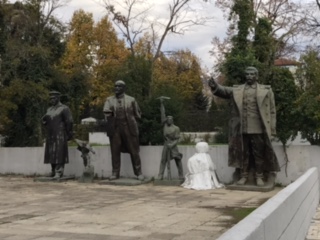
I want to end with a citation I have seen yesterday when my Austrian/Albanian friend Fate Velaj brought me to the Bunker museum in the heart of Tirana. At the entrance you can read the following words by Primo Levi:
„All those who forget their past are condemned to live it again“
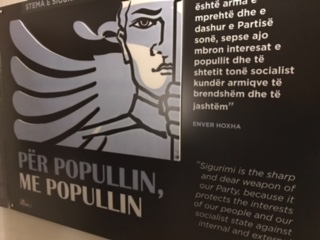
There are pasts everywhere, certainly in South East Europe you would not like to live again. We should therefore not look with a nostalgic view to the past but learning from the past prepare ourselves and our young generation for the future.
